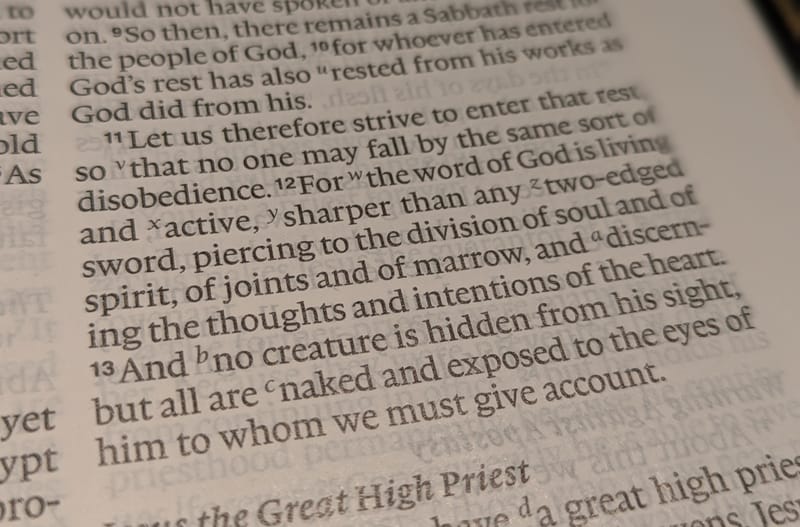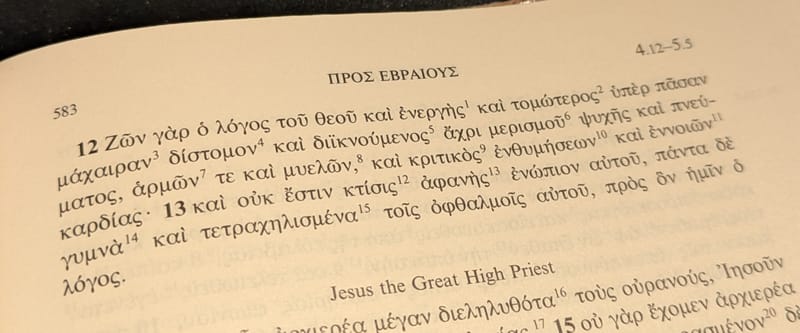Quick and Powerful
For the word of God is living and active, sharper than any two-edged sword, piercing to the division of soul and of spirit, of joints and of marrow, and discerning the thoughts and intentions of the heart. And no creature is hidden from his sight, but all are naked and exposed to the eyes of him to whom we must give account. (Heb. 4:12-13, ESV)

At its most basic level "the word of God," it seems to me, is simply God speaking. It is God speaking as he created the world and in a host of other ways, yes. But more directly it is God speaking "by his Son" (Heb. 1:2)—revealing himself and his "good news" (Heb. 4:2) of "great salvation" (Heb. 2:3) through the high priestly work of Christ. But neither should we do a narrow John 1 equation of "word of God" with Jesus in this Hebrews context. Rather, the word of God here is the "voice" of God that we hear speaking "today" (Heb. 3:7-15) whenever we hear the proclamation of the good news, the invitation to enter God's "rest" (Heb. 4:6-11).
So yes, it is right to call the Bible "the word of God" (I once drafted a whole presentation about that), but we shouldn't think of it that narrowly, especially not when reading this verse. The author of Hebrews may not have been thinking of the Bible at all as he penned the phrase. Rather, his concern was the message about salvation that God gave through his Son Jesus Christ.
And how does the word of God cut us open, exposing our hearts? It does so because it calls from us a response. Whenever we hear the word of God, we—like the Israelites who heard God's voice on the border of Canaan—cannot help but respond. Either we believe and obey, showing that the "thoughts and intentions" of our heart are soft toward God, or we respond in unbelief and disobedience, as the ancient Israelites, showing that our hearts have been hardened by the deceitfulness of sin.
A Word for a Word

As humans we ponder and prod and and slice and dice the Scriptures and the divine messages therein. Sometimes we do it for fun, because words are a gift from God and we are crafted to find satisfaction as we trace patterns and discover meaning. Sometimes we do it because this task truly is necessary, as we seek to understand and obey the divine will. But ultimately, may we never forget that it is not we who stand in judgment over the word of God, but the word of God that stands in judgment over us.
If you want to support more writing like this, please leave a gift:


